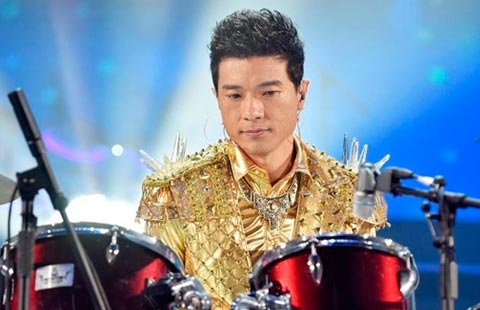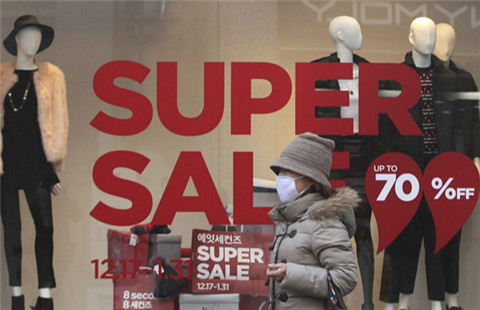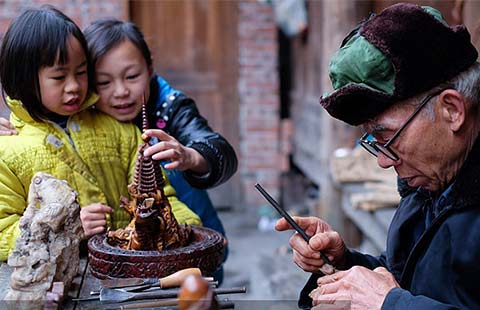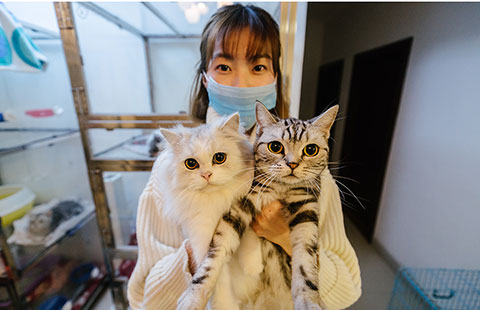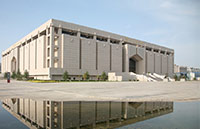Russia seeking closer participation in China's OBOR
By Cecily Liu (chinadaily.com.cn) Updated: 2016-01-21 09:54Russia is looking for closer participation in China's One Belt One Road initiative through government-backed investment into projects that puts Russia on the map, a top Russian sovereign wealth fund manager said.
Kirill Dmitriev, Russia Direct Investment Fund chief executive, who is also co-chief executive of the Russia-China Investment Fund, said that his team is looking for more OBOR-related investment opportunities after having already made a few successful investments.
"The 'One Belt and one Road' initiative is very important for Russia, as it can provide sources of additional growth. Russia is strategically placed between China and Europe, we can participate to provide more connectivity in the initiative," he said.
The $2 billion RCIF was launched in 2012 as a joint venture between China Investment Corp and RDIF, with each side committing $1 billion. Both the RDIF and RCIF recently invested in several projects that facilitate connectivity between China and Europe through Russia, including an airport project in Vladivostok that helps Chinese tourists to travel and do more business in the Russian Far East, a rail road bridge over the Amur river that connects China with Russia and cuts transportation costs, and a telecom network that potentially could connect China and Europe through Russia.
Dmitriev's words came after China's President Xi Jinping and Russian President Vladimir Putin signed a joint statement in May 2015 on integrating China's OBOR initiative with Russia's aspiration under the Eurasian Economic Union framework.
China's OBOR initiative is aimed at further strengthening trade and investment integration between Asia and Europe through infrastructure development. The Eurasian Economic Union is targeted at integration of states located primarily in northern Eurasia, and was originally set up by Russia, Belarus and Kazakhstan.
Against the backdrop of closer cooperation between China and Russia on regional integration, many government- backed business deals have resulted, one being the Chinese oil refiner Sinopec's investment in a 10 percent share in Russia's largest gas processing and petrochemicals company Sibur in December 2015, a deal that aims to strengthen both countries' petrochemicals industry efficiency.
Dmitriev said the RCIF is focused on committing to projects that would help the common interests of China-Russia relationships, with focus on sectors like technology, production of natural resources with added value and agriculture.
He said the RCIF is keen to get involved in more projects that include Russia's contribution to the OBOR map, and its current investment pipeline is about $3 billion. He said the support from both the Chinese and Russia governments for the RCIF is key to the fund's advantage, as it cuts out geopolitical risks that individual Chinese and Russian investors would face.
Dmitriev said the fund takes on a strategy of investing in projects that would provide a good financial return for the fund instead of investing in sectors or companies for political reasons. From an investment decision making perspective, it would function like any other private sector fund.
"We believe real return is key to investment. In the process of creating good returns, you create jobs, and economic growth."
In 2015 the RCIF also invested in the Chinese firms DidiKuaidi mobile platform taxi-calling application and the online education platform Tutor Group. DidiKuaidi is the Chinese equivalent of Uber, and currently the market leading taxi hailing application in China.
Tutor Group started a large English language learning platform for mainland China, Asia, and other countries in 2004, but now offers more languages and has attracted funding from the likes of Alibaba and Qiming Venture Partners.
Dmitriev said companies like DidiKuaidi and Tutor Group are already leaders in China, but the same business models can be applied equally to Russia, and he hopes by investing in those countries the fund can help to develop the synergies.
He said currently the fund has approved around 15 transactions to invest in, and so far the projects have proved profitable.
Although China's growth is slowing in recent years Dmitriev said he is not worried because he believes in the sustainable growth that China has.
"We believe it is good growth, although we do expect there will be fluctuations in the market, and we believe China will continue to be a key driver of the world economy," he said.
He also has high expectations of China's leadership in the G20 this year, and he hopes that China's leadership will work towards tackling unnecessary trade and investment barriers globally, which is a problem faced by both China and Russia's outward investment.
- Forum's vision for One Belt One Road Initiative
- Establishing a new type of think tank platform, pooling resources to develop 'One Belt One Road' community: Zhao Baige
- RMB cash demand grows in Russia
- Russian delegate calls for more high-tech cooperation between China and Russia
- Alibaba ready to expand business in Russia
- Simpsons stores coming soon to China
- China to set up information offices, lobby groups to reduce trade disputes
- New IPO rules likely to test bourses' mettle
- Smart wearable devices on track to serve fitness fanatics
- Sports-themed apps cash in on people's desire to keep fit
- Sportswear makers turn the corner after years of losses
- Cosco agrees to pay 368.5m euros for control of key Greek port
- China Nuclear to bring nuclear power to Saudi Arabia
